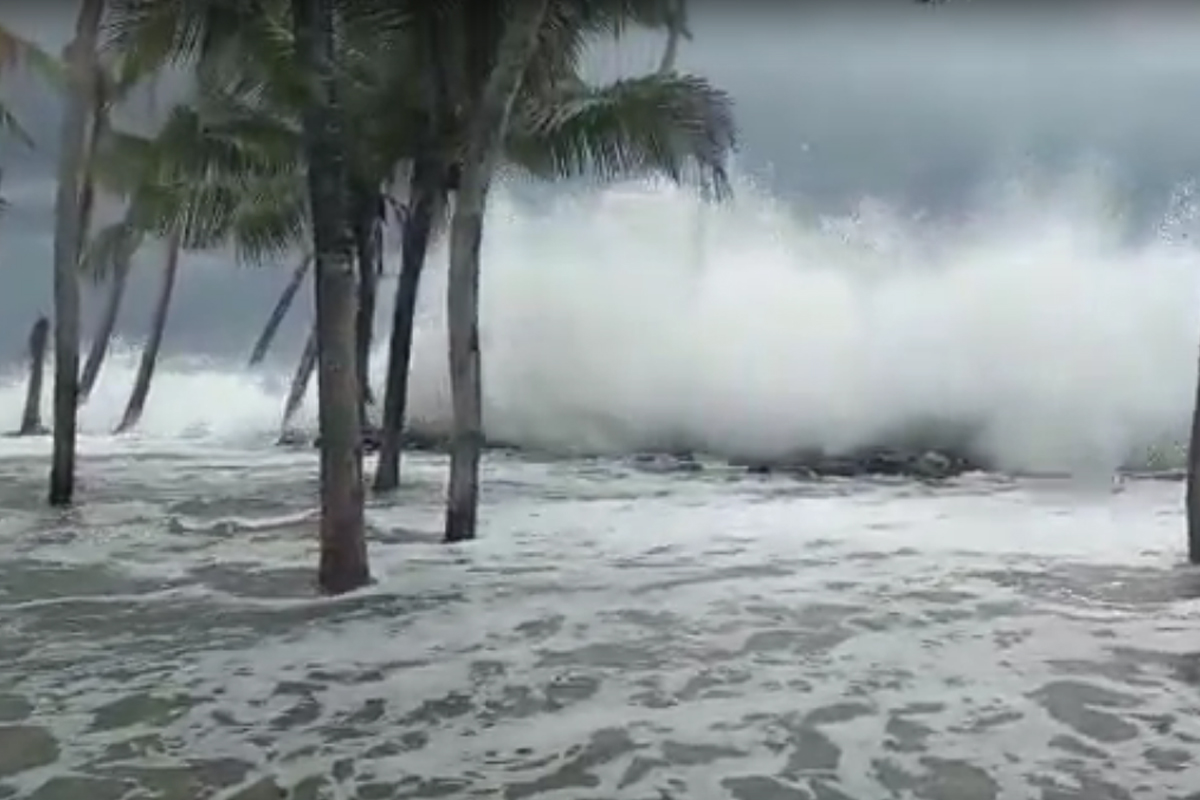Trump announces US withdrawal from World Health Organisation
Trump has long been critical of the WHO, and his administration formally withdrew from the organisation in July 2020 as the Covid-19 pandemic continued to spread.
They are on the job from today onwards to screen the health in accordance with COVID-19 health protocol, they added.

IANS photo
With apprehension of cyclone-shelter-returnees contracting the COVID-19 due to outdoor exposure looming large, the Odisha government on Thursday has undertaken the health screening of nearly 6.5 lakh people who were evacuated to the safety of shelter buildings prior to the strike of the tropical cyclonic storm Yaas.
The door-to-door health screening was scheduled to begin on 24 May. However it was suspended in cyclone-vulnerable districts of Jagatsinghpur, Kendrapara, Jajpur, Bhadrak, Balasore, Mayurbhanj, Keonjhar in view of the cyclone warning. However the health screening resumed today in these districts with emphasis on the screening of evacuated people, said senior officials on Thursday.
Advertisement
The Rapid response teams comprising doctors, paramedics, Accredited Social Health Activists and Anganwadi workers have been constituted. They are on the job from today onwards to screen the health in accordance with COVID-19 health protocol, they added.
Advertisement
“While evacuating the people in cyclone-prone districts, due attention was paid and overcrowding of cyclone centres was avoided to maintain social distancing. The face masks and sanitizers were provided to the evacuees keeping view of the continuing surge of pandemic in the State. However the outdoor exposure in emergency situations has definitely posed infection risk as lapses may not be ruled out in the critical evacuation exercises of this nature”, said Special Relief Commissioner Pradip Kumar Jena.
The government had taken all possible care in segregating the COVID positive evacuees from the rest. Besides people with SARI (severe acute respiratory illness) and ILI (influenza-like illness) symptoms were also housed in separate shelters. Still infection fear persists because of the massive nature of the evacuation drive, said officials.
The health screening teams will visit all households to record the health profile. Those found symptomatic will be subjected to rapid antigen test either at the spot or at the health centres. If large sections of people in a cluster are found symptomatic, the rapid response teams are empowered to conduct mass testing of the suspected virus carriers.
Advertisement